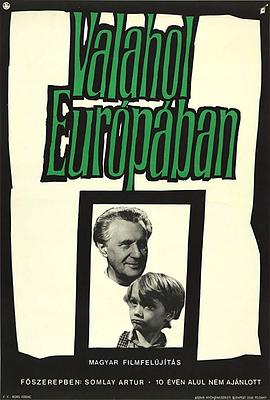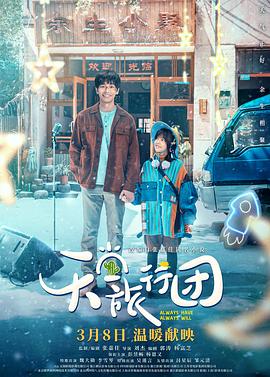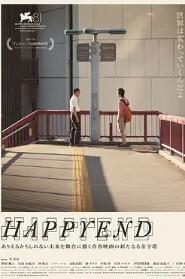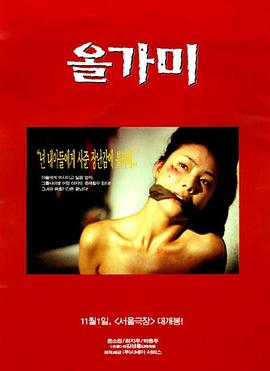
导演:
上映:
1948-11-19
更新:
2024-12-12 23:56:08,最后更新于7月前
备注:
已完结
剧情:
Somewhere in the remote region, the war ends. In the midst of ruined cities and houses in the streets, in rural hamlets, everywhere where people still live, are children who have lost their homes and parents. Abandoned, hungry, and in rags, defenseless and humiliated, they wander through the world. Hunger drives them. Little streams of orphans merge into a river which rushes forward and submerges everything in its path. The children do not know any feeling; they know only the world of their enemies. They fight, steal, struggle for a mouthful of food, and violence is merely a means to get it. A gang led by Cahoun finds a refuge in an abandoned castle and encounters an old composer who has voluntarily retired into solitude from a world of hatred, treason, and crime. How can they find a common ground, how can they become mutual friends The castle becomes their hiding place but possibly it will also be their first home which they may organize and must defend. But even for this, the price will be very high. To this simple story, the journalist, writer, poet, scriptwriter, movie director, and film theoretician Béla Balázs applied many years of experience. He and the director Géza Radványi created a work which opened a new postwar chapter in Hungarian film. Surprisingly, this film has not lost any of its impact over the years, especially on a profound philosophical level. That is to say, it is not merely a movie about war; it is not important in what location and in what period of time it takes place. It is a story outside of time about the joyless fate of children who pay dearly for the cruel war games of adults. At the time it was premiered, the movie was enthusiastically received by the critics. The main roles were taken by streetwise boys of a children's group who created their roles improvisationally in close contact with a few professional actors, and in the children's acting their own fresh experience of war's turmoil appears to be reflected. At the same time, their performance fits admirably into the mosaic of a very complex movie language. Balázs's influence revealed itself, above all, in the introductory sequences an air raid on an amusement park, seen in a montage of dramatic situations evoking the last spasms of war, where, undoubtedly, we discern the influence of classical Soviet cinematography. Shooting, the boy's escape, the locomotive's wheels, the shadows of soldiers with submachine guns, the sound of a whistle—the images are linked together in abrupt sequences in which varying shots and expressive sharp sounds are emphasized. A perfectly planned screenplay avoided all elements of sentimentality, time-worn stereotypes of wronged children, romanticism and cheap simplification. The authors succeeded in bridging the perilous dramatic abyss of the metamorphosis of a children's community. Their telling of the story (the scene of pillaging, the assault on the castle, etc) independently introduced some neorealist elements which, at that time, were being propagated in Italy by De Sica, Rossellini, and other film artists. The rebukes of contemporary critics, who called attention to formalism for its own sake have been forgotten. The masterly art of cameraman Barnabás Hegyi gives vitality to the poetic images. His angle shots of the children, his composition of scenes in the castle interior, are a living document of the times, and underline the atmosphere and the characters of the protagonists. The success of the picture was also enhanced by the musical art of composer Dénes Buday who, in tense situations, inserted the theme of the Marseilaise into the movie's structure, as a motive of community unification, as an expression of friendship and the possibility of understanding. Valahol Europaban is the first significant postwar Hungarian film. It originated in a relaxed atmosphere, replete with joy and euphoria, and it includes these elements in order to demonstrate the strength of humanism, tolerance, and friendship. It represents a general condemnation of war anywhere in the world, in any form.收起
相关影片
2009剧情片中国大陆
更新20241203期
2024剧情片其它
卢·古森斯 马里乌斯·德·赛格 基尔特·范·朗拜博格 艾米莉·德·鲁 德克·凡·迪克 Saar Rogiers Ezra Van Dongen 朱尔·古森斯 Olivier Englebert 维姆·奥普布鲁克 弗洛伦斯·赫伯林尼克 Jill Malfroot Cassie Alcendor Samba Thiam Sam Michiels Marie Gevaert Bert Dobbelaere Stephen Harrison
埃利亚斯是一个十四岁的男孩,在一个小村庄长大,他在这里感到自己像个局外人。在遇到新邻居兼同龄人亚历山大后,埃利亚斯开始面对自己逐渐显露的性意识。
HD中字
2024剧情片其它
Eyüp works relentlessly under the blazing sun during a tomato harvest in southeastern Turkey, driv
HD中字
2025剧情片大陆
第1集
2024剧情片美国
两位少女:非常乡村的 Pickels 和非常城市的 Breezy 由于监护人的错误或无法控制的情况而走到了一起。经过几个月令人不安、不太可能的友谊,以及一系列诗意的意想不到的事件后,两人独自出发,
HD中字
2024剧情片台湾
HD国语
2024剧情片日本
HD中字
2024剧情片日本
第1集
2025剧情片欧美
约翰·卡拉辛斯基 娜塔莉·波特曼 艾莎·冈萨雷斯 多姆纳尔·格里森 卡门·艾乔戈 斯坦利·图齐 拉兹·阿隆索 阿里安·穆阿耶德 米迦勒·埃普 丹尼尔·德·博格 拉塞尔·巴洛格 本杰明·奇夫斯 帕布罗·迪斯卡 唐尼·巴克斯特 乔·厄克特 史提夫·特兰 Edith Bukovics Simon Shorten Andrew Fagan Beth Graham Luke Hughes
一对关系疏远的兄妹联手展开了一场跨国劫盗行动,目标是找出传说中的“不老泉”,而这一路上,兄妹俩利用自己的历史知识破解沿途的各种线索,这段史诗般的冒险将改变他们的生活——并可能达到永生。
第1集
2025剧情片欧美
第1集
1981剧情片意大利
克里欧·戈德史密斯 凯瑟琳·斯巴克 费尔南多·雷伊 多娜泰拉·达米亚妮 列薇思·纳瓦罗 利诺·特罗伊西 阿德里安娜·鲁索 Giuseppe Pennese Francisca Fernández 吕克·米朗德 Anja Engstrom Ulla Johannsen
女作家把枪指向编辑,强行让他读自己的官能小说,小说的内容是:在名为“欲望之宿”的宾馆里,来了一位名叫阿妮的女郎,在那里飘荡着另一个世界里让人痴迷的淫荡和颓废的气息。为缓解旅途疲劳正在洗澡的阿妮,注
HD中字
2025剧情片美国
HD中字
2024剧情片法国
安娜玛丽亚·沃特鲁梅 马特·狄龙 朱塞佩·马吉奥 西莱丝特·布伦奎尔 伊万·阿达勒 玛丽·吉兰 安妮·苏亚雷斯 斯坦尼斯拉斯·莫哈 Jonathan Couzinié Mélissa Barbaud Capucine Brunet Arthur Beaudoire Arthur Verret Aurélie Garault Frédéric Moulin Edgar Guille Patrice Tepasso 马斯·贝尔西托 Jérémy Charvet Alice Suquet
“Maria” 重新塑造了《巴黎最后的探戈》女主角玛丽亚·施奈德的演艺生涯和悲剧人生。《正发生》中的新星安娜玛丽亚·瓦托洛梅饰演施奈德,而马特·狄龙则饰演与她搭档的马龙·白兰度。本片在一定程度上追
HD中字
2022剧情片美国
《追寻霍普》在霍普·霍华德神秘被解雇后不久,她的前上司——一位走投无路的科学家——发现她掌握着治疗他致命疾病的关键秘密,然而此时的她却已失踪。
HD中字
2024剧情片日本
第1集


















